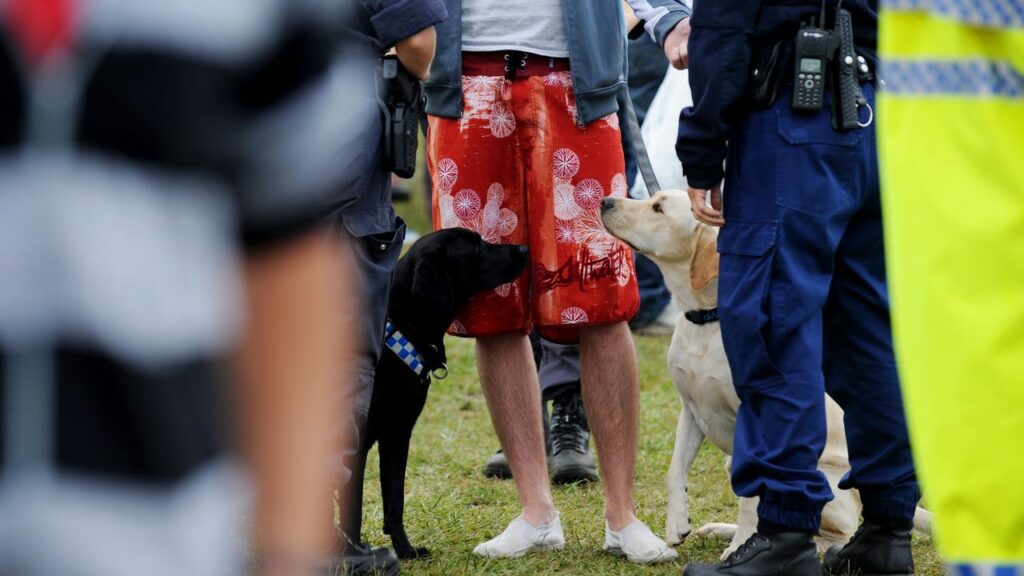‘Hands off’: cops get message in strip-search compo win
Miklos Bolza |

A woman forced to remove her clothing and tampon in an unlawful strip search has been awarded $93,000 in damages for being collateral damage in the NSW Police Force’s war on drugs.
Officers did not have reasonable grounds to strip-search Raya Meredith at the Splendour in the Grass festival at Byron Bay in 2018, the NSW Supreme Court found on Tuesday.
Officers’ belief the search was justified because a drug detection dog sniffed towards the 27-year-old woman was “entirely wrong,” Justice Dina Yehia said in her class action judgment against the State of NSW.
The legal win was notched up in the “largest class action against any police force in Australian history,” said senior associate William Zerno from the law firm running the suit, Slater and Gordon.
Ms Meredith was made to remove all her clothing, including her underwear and tampon, in a make-shift cubicle that did not offer privacy.
“She recalled feeling disgusted that another woman was putting her through this. She felt like vomiting,” Justice Yehia said.
While Ms Meredith was naked from the waist down, a male police officer walked in without warning to return her bag.
She complied with police directions, feeling threatened she would be evicted from the festival, Justice Yehia said.
“The actions of the searching police officer went far beyond those objectively necessary for the purposes of the search,” the judge found.
The 27-year-old was detained for about 30 minutes and let go after officers failed to detect drugs or prohibited items.

The experience was degrading and humiliating, Justice Yehia said.
NSW Police had not apologised to Ms Meredith, which the judge described as “confounding” and an “own goal”.
The judge awarded $43,000 in general damages to the woman for assault, battery and false imprisonment.
Police breached safeguards meant to protect the privacy and bodily autonomy of individuals being strip-searched, the judge found.
They did not inform Ms Meredith she would be strip-searched to gain her consent and had no legal power to force her to move her body or body parts.
Ms Meredith was also awarded $30,000 in aggravated damages for the serious departures from state law and NSW Police Force policies.
A further $20,000 was awarded after the NSW government took two years to backflip on the legality of strip-searching the 27-year-old after initially denying officers broke the law.

The government’s admission did not extend to more than 3000 people strip-searched between 2016 and 2022 who have registered for the class action.
Justice Yehia found Ms Meredith should be awarded exemplary damages over a systemic failure by NSW Police to properly train its officers.
But the exact amount will be determined after the court considers compensation for the remaining individuals registered for the class action.
Ms Meredith said in a statement she was one of many to suffer “inhumane treatment” at the hands of police.
“I would like to see justice for all in the class action,” she said.
“NSW police have admitted fault by me and now need to take ownership for the wrongdoings to the rest of the class.”
Mr Zerno said police had used their extraordinary powers at an “industrial level” without a thought for proper safeguards.
“Minors were strip-searched, some people were subjected to cavity searches and people were strip-searched in public view,” he told reporters.
He urged the state to resolve the proceedings through an offer of compensation.

Redfern Legal Centre supervising solicitor Samantha Lee said this was punishment against the state for “egregious” behaviour.
“The message of this case is: police, get your hands off young people and children’s bodies,” she said.
A NSW Police spokesperson said the force would review and consider Justice Yehia’s findings.
The matter will return to court on October 31.
AAP